Jargon Buster
Translating jargon to English
Finance can often be confusing, especially with the amount of specific terms used by different financial organisations. We have developed a guide to all the main lingo, to help you understand exactly what is going on. Below are some commonly used terms and an explanation of what they actually mean.
A
-
Additional Borrowing
Borrowing more money and increasing the overall size of your loan or mortgage. You can use the money for a variety of purchases not necessarily connected to your property or initial purchase.
-
Agreement in Principle
Gives you an indication of how much you may be able to borrow towards the purchase or remortgage of a property. You can use the AIP to show estate agents you are in a financial position to purchase the property. This is not a guarantee that you’ll secure the new funds as you will still be subject to a full affordability review and credit check.
-
Annual Percentage Rate (APR)
An APR is a percentage rate which is charged on borrowing each year. It allows you to work out the cost of borrowing money and also helps you to compare the cost of different borrowing options. The majority of credit agreements will show the cost of borrowing as an APR.
-
Annual Percentage Rate of Charge (APRC)
APRC stands for the Annual Percentage Rate of Charge. It’s a percentage figure that shows you the total cost of your mortgage over the duration of the mortgage term. The APRC is there to help you compare mortgages by giving you a single figure that considers all fees and interest rates across the whole mortgage.
-
Arrears
Arrears occur when you fail to make a repayment by a scheduled date set out in a credit agreement. For example if you made a loan repayment late, the account would fall into arrears as you would be behind on your payments.
It is worthwhile knowing that arrears can affect your credit score as they show as a missed/late payment, and some lenders can charge you additional fees if you’re in arrears.
B
-
Bank of England Base Rate
This is the interest rate that banks and lenders pay when they borrow from the Bank of England. It affects rates on saving and borrowing products for a customer. For example, if the Bank of England increased its base rate, it is likely that other lenders would pass on this increased cost by increasing their own interest rates on both borrowing and saving. The opposite would likely happen if base rate reduced e.g. cheaper borrowing and reduced return on savings. Base rate is altered depending on what is necessary for the economy, either to encourage or discourage spending.
-
Bankers Automated Clearing Services (BACS)
BACS is a common way to transfer money from one bank account to another in the UK. Transfers can take up to three working days to clear e.g. if you transfer money on the Monday it will clear on Wednesday.
Alternative payment transfers are CHAPS payments and Faster Payments.
-
Bankruptcy
Bankruptcy is a way of ending your liability for debts that you cannot pay. Any assets that you own may be sold to raise money to pay to your creditors. This can have serious consequences and should be research fully before considering this as an option. There’s more information available on our web page here.
-
Budget
A financial plan designed to track and forecast monthly expenditure. It helps identify how much money you are spending compared to how much you earn. The plan will log all essential outgoings and then show you how much disposable income you should have left. To see how much money you have to spend each month, use our budget planner here.
C
-
CHAPS
Clearing House Automated Payment Systems is an electronic payment system which provides users with same-day transfers of larger funds between accounts. Banks pay a fee to use this service and quite often will charge the consumer that fee to recoup the costs.
-
Conveyancing
This is the legal and administrative process of buying or selling property. Commonly organised by the buyer and seller and carried out by a solicitor or other conveyancing specialist, not the lender.
-
Cooling Off Period
This is a set period of time which you have to change your mind about a product or service, and either cancel it or claim a refund. In financial terms you can exit a contract during this period without acquiring a fee or charge. The statutory minimum cooling off period is 14 days.
-
County Court Judgement (CCJ)
A CCJ is a court order and is registered against a person to instruct them to repay a debt. CCJ’s can negatively affect your credit score and ability to obtain credit for up to 6 years. For more information on CCJ’s click here.
-
Credit Agreement
A credit agreement is a legally binding contract made between a borrower and a lender. It outlines the rules of the lending, which include repayment terms, fees and interest rates. You will be given a credit agreement for loans, credit cards, and many other credit arrangements. The credit agreement will also include information about the cooling-off period.
-
Credit Check
Lenders can check your credit file when they are assessing an application for credit, or sometimes they can check your file before making you an offer to entice you to apply for credit. The results show current and historic debts, credit and highlight if payments have been made late or not at all.
-
Credit Reference Agency
Credit reference agencies are independent organisations which securely hold financial data about individuals. They collect information about a persons credit history and make it available to banks, building societies, credit unions and other financial organisations. Organisations will access a persons credit file through a credit reference agency when they apply for credit, which helps them to make a decision.
-
Credit Union
Credit unions were created to help members save and use these pooled savings to lend to members who needed to borrow. The idea is that as membership and savings grow, more members can helped. Surplus profit made from this borrowing is then shared amongst members each year in the form of an annual dividend, this is because credit unions are not for profit. Saving continues to be an important part of credit union membership as it helps members build financial stability alongside helping others to borrow.
D
-
Debt
Money that you owe to another individual or organisation.
-
Debt Consolidation
Debt consolidation is bringing debts together and is sometimes a way to help manage debt. It usually consists of applying for a loan (or other credit arrangement) which totals existing debt, then using this new loan to repay and close all other credit arrangements. The idea is that the new loan is cheaper and save the individual money each month, and/or repay debt faster. More information can be found on consolidation here.
-
Debt Management Plan
A DMP is an informal agreement between a debtor and a creditor whereby they come to an agreement in relation to repaying outstanding debt. You usually repay an amount every month which is divided between creditors, using a Debt Management Plan provider. More information can be found on DMP’s here.
-
Deeds
Title deeds are the legal documents which record the ownership of a property.
-
Dependant
A dependant is an individual who relies on another (usually a family member) for financial support. This is typically children, partners, parents, or other relatives who you financially support within your household.
-
Direct Debit
A Direct Debt is an in instruction set up with a bank which authorises withdrawals to occur from a person’s bank account to another bank account. This is usually to pay bills or subscriptions.
-
Disposable Income
The amount of money from your overall income you will have left after paying for essential outgoings. This money can be freely allocated towards your savings or spent on personal purchases.
-
Dividend
A dividend is a share of surplus which is usually distributed to members or shareholders. The dividend can vary depending on the financial success of the organisation. In terms of credit unions, a dividend is a percentage which is paid on a members savings following the end of its financial year.
E
-
Early repayment charge (ERC)
An early repayment charge is a sometimes charged by a lender if you repay a loan or mortgage before the term previously agreed. These charges should be carefully considered if you are looking to settle a credit agreement in full prior to the anticipated end date, as it could be expensive to do so.
-
Equity (Home)
A simple measure of how much of your home you own. If you take away the amount of your current mortgage from the value of the property, you will have the equity. The more mortgage you repay, the higher the equity you’ll own in the property.
F
-
Financial Conduct Authority (FCA)
The Financial Conduct Authority is a financial regulatory body in the United Kingdom. It is responsible for the functioning of the UK financial markets. The Authority aims to ensure honest and fair markets by protecting consumers, enhancing market integrity, and promoting competition.
-
Financial Ombudsman Service (FOS)
The Financial Ombudsman Service (FOS) is an independent official body in the UK that resolves disputes between consumers and financial services providers.
They offer free, impartial resolution for complaints about banking, insurance, investments, and mortgages, ensuring fair treatment for consumers.
-
Financial Services Compensation Scheme (FSCS)
The UK’s statutory deposit insurance and investors compensation scheme for customers of authorised financial services firms. This means that FSCS can pay compensation if a firm is unable, or likely to be unable, to pay claims against it.
The FSCS protects your money up to £85,000 for all banks, building societies and credit unions that are authorised by the Prudential Regulation Authority (PRA) and the Financial Conduct Authority (FCA).
-
Fixed Rate
Whether it’s a savings rate or interest on a loan or mortgage the fixed rate will be the interest rate set for the specified term. The rate will neither move up or down but could change when the term has ended.
-
Freehold
When you own property or land by freehold, you will own it outright, including the land that it’s built on.
G
-
Gross Income
Your gross income is the total income from your employer without deduction of tax or other contributions.
-
Gross interest and Annual Equivalent Rate (AER)
Gross interest is the annual interest rate earned on savings, without factoring in introductory bonuses, compounding, charges, or taxes. AER represents the annual percentage of interest earned on savings, including compound interest (interest on interest already paid).
-
Guarantor
Someone who agrees to meet the monthly mortgage payments if you are unable to. Guarantors may be parents/guardians of first-time buyers.
I
-
Income tax
This is tax which is charged directly on your income. Most people in the UK get a personal allowance of tax-free income. As of April 2020, you’re entitled to earn up to £12,500 tax-free. If you earn over this, there are certain income tax brackets that you may fall into, how much you pay depends on which of the brackets you fall under. You can see the current rates of tax by viewing the governments website by clicking here.
-
Individual Savings Account (ISA)
An ISA is a savings account where you can save tax-free. This means you are not required to pay any tax on your returns.
There is a restriction on how much you can save or invest in an ISA per tax year, which is known as your annual ISA allowance. There are a variety of different ISA’s you can open depending on what you need such as savings accounts, investments ISA’s, Help to Buy ISA’s, Lifetime ISA’s. You are only allowed to open one new ISA per tax year.
-
Individual Voluntary Arrangement (IVA)
An alternative available for people looking to avoid bankruptcy. A formal and legally binding agreement between you and your creditors. An IVA freezes your debts and allows you to pay them back over a set period. Choosing an IVA can mean that up to 80% of your debt written off and the rest you pay back in affordable monthly repayments, with no added interest and no more legal action or hassle from your creditors. Any amount you still owe after the time is then written off.
Read more information on the different types of debt management here.
-
Interest rate
A rate decided and charged by a lender for the borrowing their money. Interest is calculated on the percentage of a loan or deposit and is paid periodically.
For saving accounts it is the rate your bank or building society will pay you for depositing your money with them. The money you earned for holding savings with them is the interest.
L
-
Leasehold
When you own a property by leasehold, you will own the property for the time set by the lease agreement. Once the lease has expired, ownership is transferred back to the freeholder (the person who owns the land which the property is on or in).
M
-
Maturity
Maturity refers to the end of a specific period for certain savings accounts. When an account matures, it usually closes and you will receive your savings plus any interest accrued over that period.
-
Mortgage Balance
This is the total amount owed at any one time during a mortgage term.
-
Mortgage Deposit
This is the initial payment a homebuyer makes when purchasing a property, usually expressed as a percentage of the property’s total purchase price. The deposit is paid upfront and reduces the amount of money the buyer needs to borrow from a lender through a mortgage.
N
-
Negative Equity (Home)
Negative equity means the value of the property falls below the amount outstanding on your mortgage. If this happens this means you owe more money than the house is worth. When you come to sell the property, you would still owe an existing debt.
O
-
Open banking
The practice of sharing financial information electronically, securely, and only under conditions that members approve of. Information is shared directly from your bank to the company you chose to allow access. We use open banking with Credit Kudos at No1 CopperPot to make our loan process more efficient.
-
Overdraft (arranged)
An agreement with an individual’s bank where you can overdraw on your bank balance up to an agreed limit. Your bank will charge you interest and sometimes fees. Interest rates charged on overdrafts usually range from 19% to 40%.
-
Overdraft (unarranged)
When you overdraw on your bank balance without an agreement in place with your bank, or you exceed a pre-agreed limit. Your bank may charge you daily, weekly or monthly until you are no longer overdrawn.
-
Overpayment
Overpayment – You can either choose to pay extra on monthly loan or mortgage payments or overpay as a one-off payment. This can reduce the amount you pay in interest, shorten your loan or mortgage term or reduce the monthly repayment amount.
Overpaying isn’t always possible and can sometimes come at a cost. Please see your specific loan or mortgage terms and conditions for more information.
P
-
Payroll Deduction
When agreed amounts are deducted from an employees pay and distributed amongst agreed people. For example, Tax, national insurance contributions and pension. Savings and loan repayments with No1 CopperPot are made through payroll deduction if available in your force.
-
Pension
A financial plan which upon retirement will provide you with an income. Pensions can be private or publicly owned.
-
Personal Saving Account (PSA)
Personal Saving Allowance is the total amount of interest you can earn on savings each year, tax free and is based on your income. Please see the HMRC guidance on PSA.
-
Power of Attorney (POA)
A legal document that gives authority for a nominated individual to be able to make decisions for you, or act on your behalf. This is used if you are no longer able to or no longer want to make your own decisions.
-
Prudential Regulation Authority (PRA)
A part of the Bank of England. It’s responsible for the prudential regulation and supervision of around 1,500 banks, building societies, credit unions, insurers and major investment firms. It sets standards and supervises financial institutions at the level of the individual firm.
-
Product Fee
This a fee applicable to the type of mortgage you select. Lenders may charge product fees on certain mortgages or not at all.
R
-
Re-mortgage
A re-mortgage, also known as refinancing, is the process of paying off an existing mortgage and replacing it with a new one. Homeowners may choose to re-mortgage to obtain a better interest rate, reduce monthly payments, change the mortgage term, switch from a variable to a fixed-rate mortgage (or vice versa), or to release equity from their property. This can be done with the existing lender or a new one, and is likely done at the end of a fixed-rate mortgage term to avoid fees.
-
Repossession
A part of the Bank of England. It’s responsible for the prudential regulation and supervision of around 1,500 banks, building societies, credit unions, insurers and major investment firms. It sets standards and supervises financial institutions at the level of the individual firm.
S
-
Secured loan
A loan that is secured against your assets to act as collateral to secure the loan. If you failed to repay the loan, the lender has the right to take the agreed assets off you to repay the loan. For example, a finance agreement with a car company is a secured loan. If you fail to make your payments they can seize the car from you to repay the loan.
-
Standing order
An instruction given to a bank by an account holder to make regular payments to the same person at the same time each month. For example, rent or mortgage repayments.
-
Statement
A statement shows details of all transactions on an account. For example, you may have an annual statement showing deposits and withdrawals made on any current accounts and saving accounts.
T
-
Tax
A charge paid to the government against your earnings. The amount of tax payable will depend on how much an individual earns. Sometimes this tax is paid against the interest you receive on money in your saving accounts. Click here to find a breakdown of when you might have to pay tax on your savings.
U
-
Unsecured Loan
An unsecured loan is a loan which isn’t secured against your assets. For example, a credit card or an overdraft. If you failed to repay the loan, a company can’t seize your assets to cover the cost.
Cookie Policy
This website uses cookies to improve your experience, for analytics and to show adverts tailored to your interests. You can find out more by reading our Cookie Policy.Read More
Accept and close
RejectSettings
Privacy Overview
| Cookie | Duration | Description |
|---|---|---|
| _hjSession_2313981 | 30 minutes | No description |
| _hjSessionUser_2313981 | 1 year | No description |
| _mc_anon_id | past | This is a Mailchimp functionality cookie used to evaluate the UI/UX interaction with its platform. |
| gpnf_form_session_46 | 7 days | No description |
| gpnf_form_session_47 | 7 days | No description |
| gpnf_form_session_57 | 7 days | No description |
| gpnf_form_session_67 | 7 days | No description |
| Cookie | Duration | Description |
|---|---|---|
| _fbp | 3 months | This cookie is set by Facebook to display advertisements when either on Facebook or on a digital platform powered by Facebook advertising, after visiting the website. |
| fr | 3 months | Facebook sets this cookie to show relevant advertisements to users by tracking user behaviour across the web, on sites that have Facebook pixel or Facebook social plugin. |
| loc | 1 year 1 month | AddThis sets this geolocation cookie to help understand the location of users who share the information. |
| MUID | 1 year 24 days | Bing sets this cookie to recognize unique web browsers visiting Microsoft sites. This cookie is used for advertising, site analytics, and other operations. |
| NID | 6 months | NID cookie, set by Google, is used for advertising purposes; to limit the number of times the user sees an ad, to mute unwanted ads, and to measure the effectiveness of ads. |
| VISITOR_INFO1_LIVE | 5 months 27 days | A cookie set by YouTube to measure bandwidth that determines whether the user gets the new or old player interface. |
| YSC | session | YSC cookie is set by Youtube and is used to track the views of embedded videos on Youtube pages. |
| yt-remote-connected-devices | never | YouTube sets this cookie to store the video preferences of the user using embedded YouTube video. |
| yt-remote-device-id | never | YouTube sets this cookie to store the video preferences of the user using embedded YouTube video. |
| yt.innertube::nextId | never | This cookie, set by YouTube, registers a unique ID to store data on what videos from YouTube the user has seen. |
| yt.innertube::requests | never | This cookie, set by YouTube, registers a unique ID to store data on what videos from YouTube the user has seen. |
| Cookie | Duration | Description |
|---|---|---|
| _ga | 2 years | The _ga cookie, installed by Google Analytics, calculates visitor, session and campaign data and also keeps track of site usage for the site's analytics report. The cookie stores information anonymously and assigns a randomly generated number to recognize unique visitors. |
| _ga_7MTCY9P9C9 | 2 years | This cookie is installed by Google Analytics. |
| _ga_R2MV76WQ7H | 2 years | This cookie is installed by Google Analytics. |
| _gat_gtag_UA_70039225_1 | 1 minute | Set by Google to distinguish users. |
| _gcl_au | 3 months | Provided by Google Tag Manager to experiment advertisement efficiency of websites using their services. |
| _gid | 1 day | Installed by Google Analytics, _gid cookie stores information on how visitors use a website, while also creating an analytics report of the website's performance. Some of the data that are collected include the number of visitors, their source, and the pages they visit anonymously. |
| _hjAbsoluteSessionInProgress | 30 minutes | Hotjar sets this cookie to detect the first pageview session of a user. This is a True/False flag set by the cookie. |
| _hjFirstSeen | 30 minutes | Hotjar sets this cookie to identify a new user’s first session. It stores a true/false value, indicating whether it was the first time Hotjar saw this user. |
| _hjIncludedInPageviewSample | 2 minutes | Hotjar sets this cookie to know whether a user is included in the data sampling defined by the site's pageview limit. |
| _hjIncludedInSessionSample | 2 minutes | Hotjar sets this cookie to know whether a user is included in the data sampling defined by the site's daily session limit. |
| _hjTLDTest | session | To determine the most generic cookie path that has to be used instead of the page hostname, Hotjar sets the _hjTLDTest cookie to store different URL substring alternatives until it fails. |
| at-rand | never | AddThis sets this cookie to track page visits, sources of traffic and share counts. |
| CONSENT | 2 years | YouTube sets this cookie via embedded youtube-videos and registers anonymous statistical data. |
| uvc | 1 year 1 month | Set by addthis.com to determine the usage of addthis.com service. |
| xtc | 1 year 1 month | Anonymously tracks user behaviour on the websites that allow a user to share pages on social media using the AddThis tool. AddThis log the anonymous use to generate usage trends to improve the relevance of their services and advertising. |
| Cookie | Duration | Description |
|---|---|---|
| __atuvc | 1 year 1 month | AddThis sets this cookie to ensure that the updated count is seen when one shares a page and returns to it, before the share count cache is updated. |
| __atuvs | 30 minutes | AddThis sets this cookie to ensure that the updated count is seen when one shares a page and returns to it, before the share count cache is updated. |
| _mcid | 1 year | This is a Mailchimp functionality cookie used to evaluate the UI/UX interaction with its platform |
| Cookie | Duration | Description |
|---|---|---|
| _uetsid | 1 day | Bing Ads sets this cookie to engage with a user that has previously visited the website. |
| _uetvid | 1 year 24 days | Bing Ads sets this cookie to engage with a user that has previously visited the website. |











